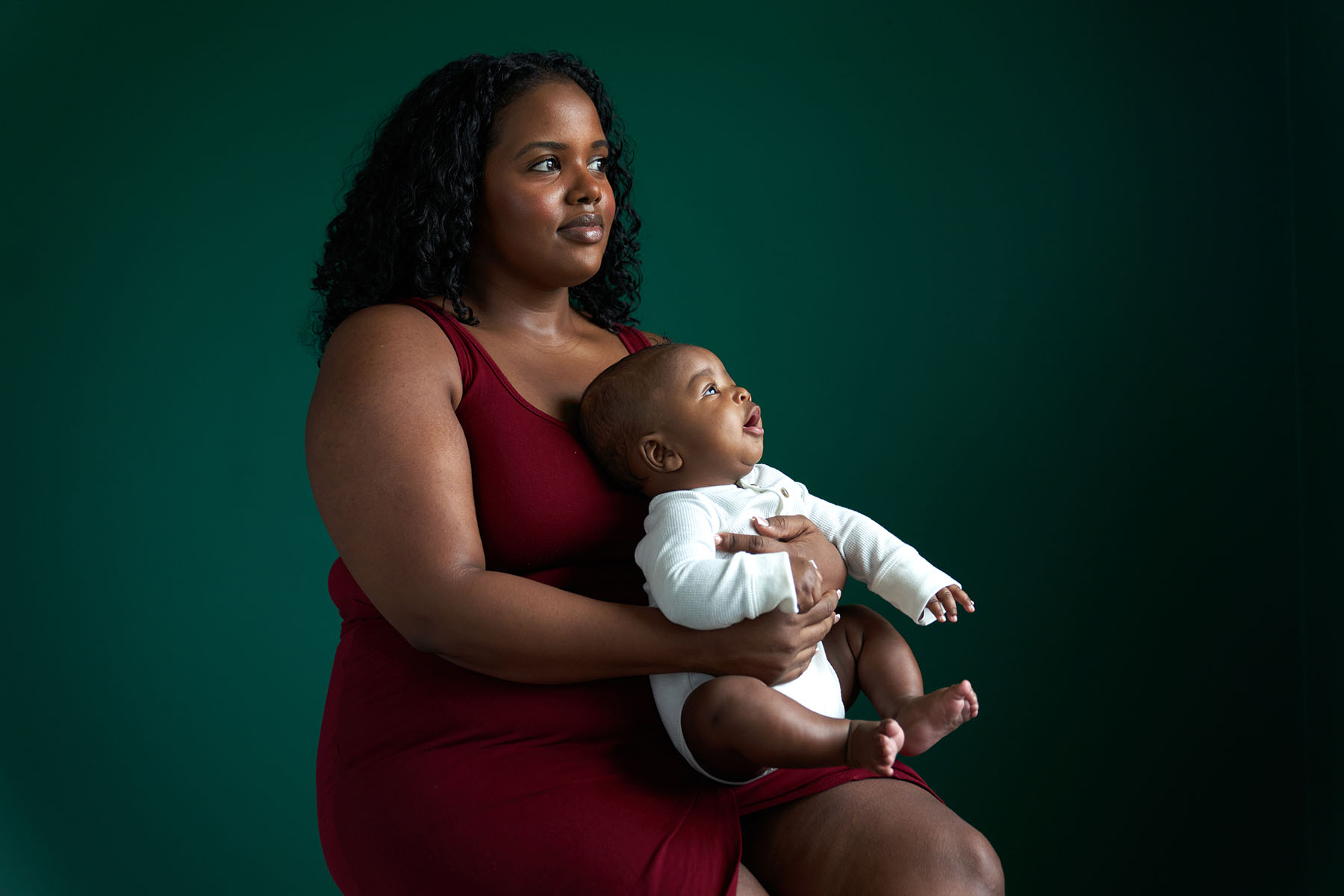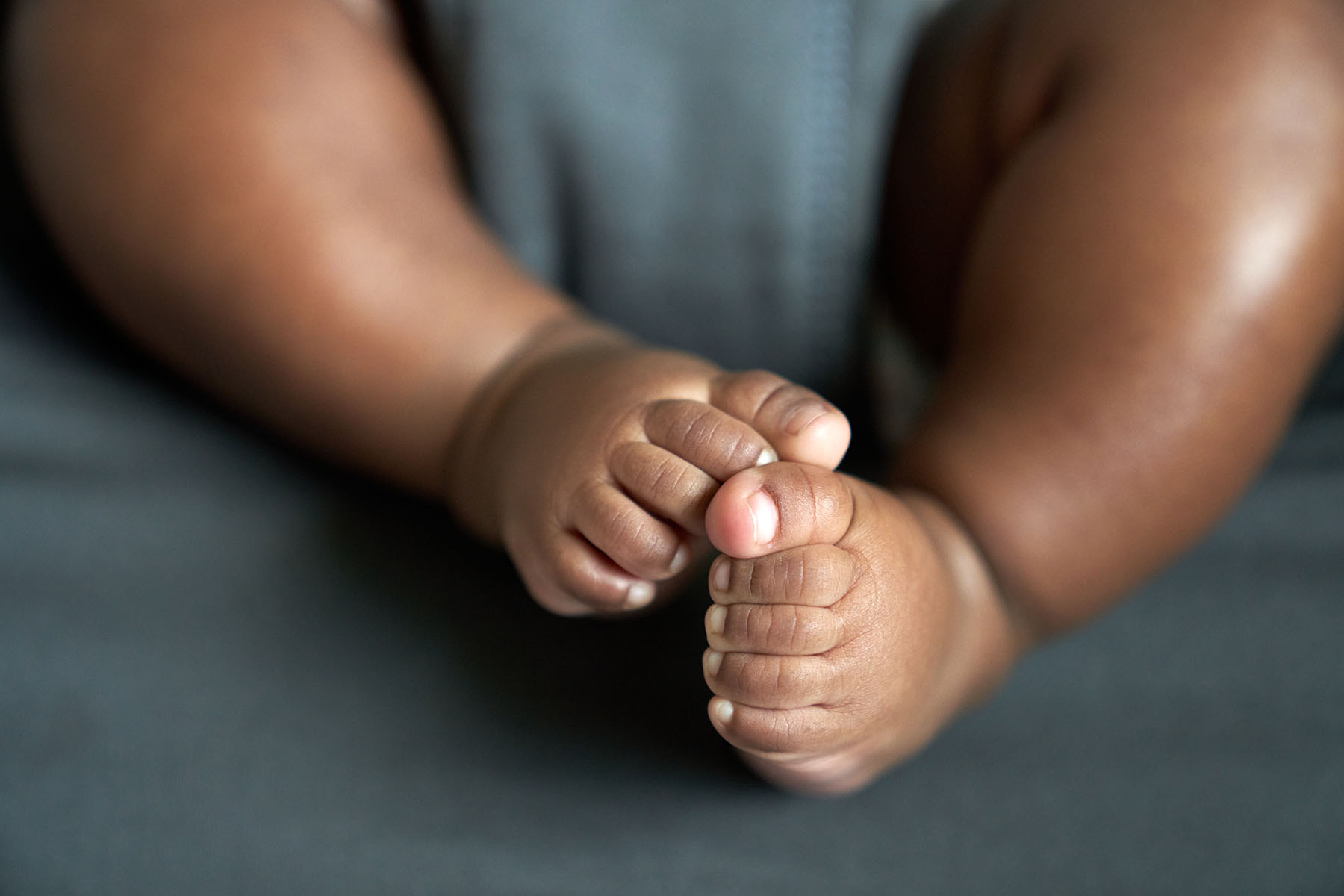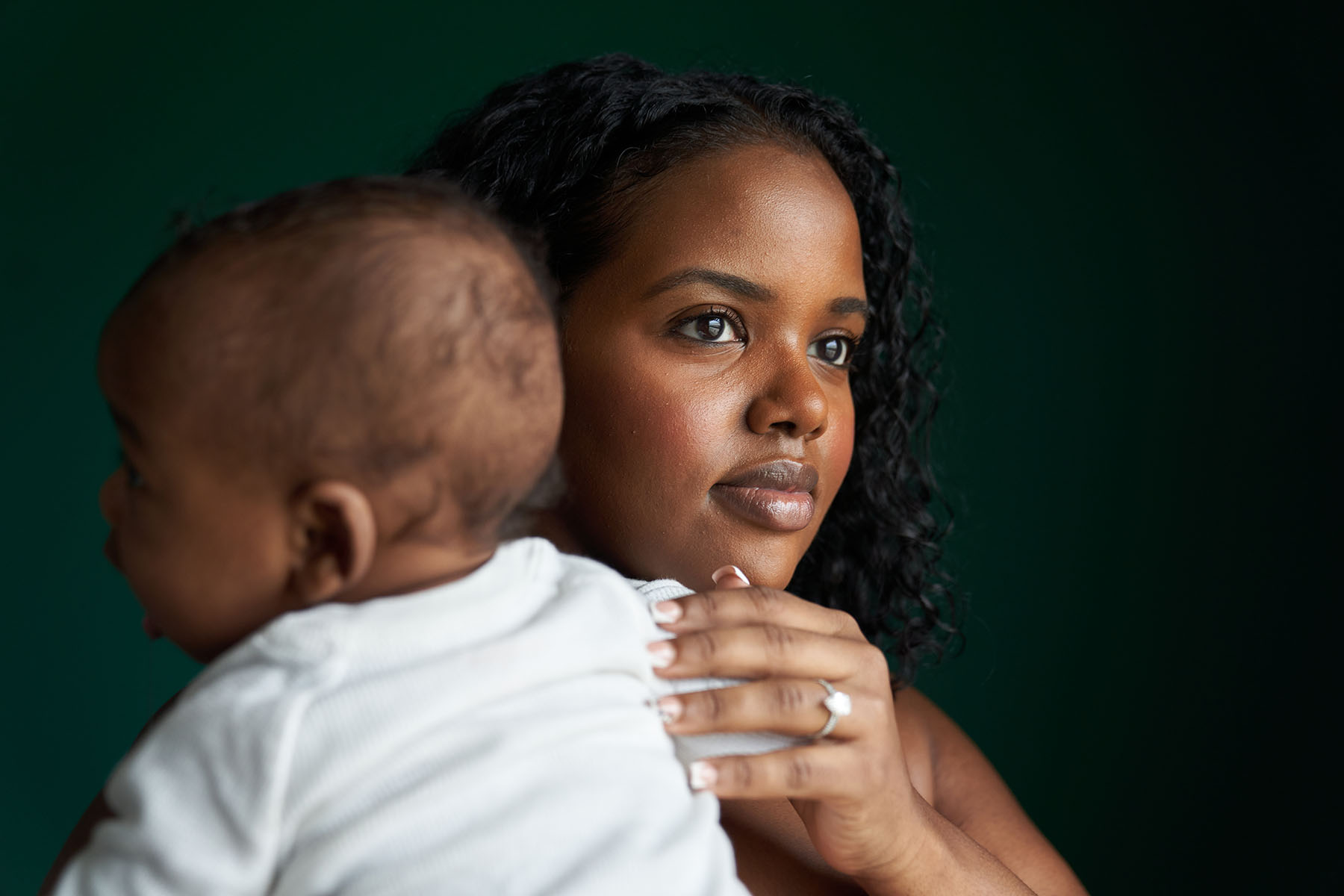When Selam Solomon Caldwell and her husband learned she was pregnant last year, the stakes for finding the right OBGYN felt high. Caldwell, a Black woman, had heard stories from family and friends of maternity care providers who ignored their requests or pressured them into cesarean sections without clear medical justification.
As a relative newcomer to Los Angeles, the recruiter, now 31, knew few Black people who could recommend doctors who had treated them with respect. She combed review sites, including Google reviews and Healthgrades, but couldn’t find how nearby physicians and hospitals might treat a Black woman like her.
“It’s hard to tell if it’s a fellow Black person who’s giving the review,” Caldwell said.
Consumer ratings sites rarely identify patient experiences by race or ethnicity and hospitals are under no obligation to reveal the racial and ethnic breakdowns of their patient satisfaction scores. Yet that information could be instrumental in holding maternity care providers and hospitals accountable for treating patients inequitably and could empower pregnant people like Caldwell in finding quality obstetric care.
“You can’t change what you don’t see,” said Kimberly Seals Allers, founder of Irth, an app allowing Black and Brown pregnant people to find and leave reviews of maternity care providers. She’s one of a few entrepreneurs developing new tools for collecting feedback from parents of color.
A steady drip of new research over the past several years has spotlighted racial discrimination by maternity care providers and the role it may play in one of the country’s most vexing health disparities: Black people experience the worst birthing outcomes, a gap not explained by income or education, according to a KFF analysis. In 2021, they were nearly three times as likely to die of pregnancy-related causes as White people.
Parents of color, especially Black women, report that they do in fact experience discrimination. They are more likely than White women to say that their care providers ignored them, scolded them, or pressured them into treatments they didn’t want. The extent to which discrimination is reported varies widely by survey, but one recently published report by the Centers for Disease Control and Prevention found roughly 30 percent of Black, Hispanic and multiracial women reported mistreatment during maternity care, compared with 20 percent of women overall.
It’s unclear how many hospitals track survey responses by race, and, even if they do, they rarely reveal that information. And the federal government requires generic reporting on how patients say they were treated, making it difficult to pin down and address incidents of bias in maternity care.
Funding and regulations lag
Currently, the results of the industry’s standard patient experience survey, known as the Hospital Consumer Assessment of Healthcare Providers and Systems, are made publicly available by the federal government to help patients compare hospitals. They incentivize hospitals to improve care and are included in the rankings of many hospital ratings sites, such as U.S. News & World Report’s Best Hospitals. But it doesn’t ask about maternity care or discrimination and has low response rates, particularly among people of color.
These flaws can also make the survey inadequate for improving birth equity. “We know it’s insufficient,” said Amanda P. Williams, an OBGYN and clinical innovation adviser to the nonprofit California Maternal Quality Care Collaborative. Hospitals, she said, could fill in the gaps by collecting feedback from maternity care surveys and breaking the results out by race and other demographic information; they could also talk to patients through forums such as town halls or focus groups.
Joy Lewis, senior vice president for health equity strategies at the American Hospital Association, said many hospitals do this work, both generally and in obstetrics.
However, Williams believes it isn’t happening enough in maternity care.
She said there are some pockets where people are doing these activities but that they are not yet widespread. At a national conference of 200 hospital executives this year, Williams said, only a few raised their hands when asked if they break out their maternity outcomes data. “If your overall C-section rate is fine, you might think everything’s hunky-dory,” she said. “But if you see that your Black people are having 50 percent higher C-section rates than your White and Asian patients, there’s very important work to be done.”

Then there are barriers to participation. Studies have found many in the Black community distrust the health care system.
Fearing retaliation and being seen as an “angry Black woman,” Ta-She-Ra Manning, a maternal health program coordinator in Fresno, California, said she didn’t provide any critical feedback when her OBGYN dismissed her concerns about unusual symptoms during her 2021 pregnancy.
Meanwhile, new funding to measure disparities has been slow in coming. President Biden’s 2023 budget proposed $7.4 million to develop a supplemental survey aimed at reducing maternal health disparities, among other steps. But Congress did not fund the item. Instead, an agency in the Department of Health and Human Services is developing it with its own funding and estimates the work will take less than five years, according to a statement from Caren Ginsberg, who directs the agency’s surveys.
Still, the public likely won’t see changes anytime soon. After a survey’s measures are created, it can take several years for the results to be publicly reported or tied to payment, said Carol Sakala, senior director for maternal health at the National Partnership for Women & Families, an advocacy organization.
“This molasses level of movement contrasts acutely with all the things hitting the news about people not getting the right care and attention and respect,” Sakala said.
Amid growing interest in health equity, traditional ratings sites are grappling with how much to share with the public. For its birthing hospital ratings, U.S. News & World Report recently started assessing whether hospitals tracked racial disparities in maternity outcomes measures, but it withholds actual results. Healthgrades is taking time to think through how to collect and display sensitive information publicly, said spokesperson Sarah Javors in a statement.
Black innovators fight for better data
Some Black women are trying to fill the void by creating new feedback mechanisms that could be more trusted by the community. Allers said she created Irth after a traumatic birth experience as a Black mother at a highly rated hospital left her feeling failed by mainstream ratings. On the app, verified users answer questions, from whether they felt respected by their doctor to if they experienced certain types of mistreatment such as dismissal of pain. Irth currently has 10,000 reviews of hospitals, OBGYNs and pediatricians nationally, according to Allers.
“Our data is for the community,” Allers said. “They know their feedback has value to another mom or family.”
Irth also offers analysis of the reviews to hospitals and leads campaigns to collect more reviews for them. But Allers said many hospitals have expressed little interest.
Karen Scott, an OBGYN who created PREM-OB, a scientifically validated survey that measures racism in Black birthing experiences, said she has met hospital leaders who don’t think their providers could mistreat patients or who worry that documenting responses could carry legal risk.
The American Hospital Association’s Lewis declined to comment specifically on Irth and PREM-OB but acknowledged the Black community’s long-standing mistrust of health care providers. She said hospitals want to hear more from patients in historically marginalized groups.
Early signs of progress are emerging in parts of the country.
California hospitals will likely report disparities in birth outcomes and patient satisfaction measures. Hospitals are expected to start posting data broken out by race and other demographics on their websites in 2026, though the state hasn’t finalized the measures that will be required, said Andrew DiLuccia, a spokesperson for the state’s health data agency. At least two states, Washington and New Jersey, have disclosed rates of C-sections among low-risk patients by race for individual hospitals.

Scott founded Birthing Cultural Rigor to increase uptake of her survey. The firm has partnered with birth equity groups to recruit respondents in select counties in Georgia, Michigan, Ohio and Tennessee. Scott said results will be used to train local health professionals on how to reduce racism in maternity care.
Separately, Irth will collect and analyze reviews for three hospitals or health systems in California, Allers said. One of them, MemorialCare Miller Children’s and Women’s Hospital Long Beach, will work with Irth to better understand the impact of birth equity efforts such as implicit bias training.
“We’ll get to see if what we’re doing is actually working,” said Sharilyn Kelly, executive director of the hospital’s perinatal services.
Caldwell, the recruiter, eventually found a doctor she trusted and went on to have a smooth pregnancy and delivery. Her son is now 8 months old. But with so little information available on how she might be treated, she said, she felt anxious until she met her doctor, when “a lot of that stress and anxiety melted away.”
Digital strategy & audience engagement editor Chaseedaw Giles contributed to this report.
[Editor’s note: KFF Health News publishes California Healthline, an editorially independent service of the California Health Care Foundation, which has contributed funding to PREM-OB and the birth equity nonprofit Narrative Nation, which developed Irth.]
This article was produced by KFF Health News, formerly known as Kaiser Health News (KHN), a national newsroom that produces in-depth journalism about health issues and is one of the core operating programs at KFF — the independent source for health policy research, polling, and journalism. KFF Health News is the publisher of California Healthline, an editorially independent service of the California Health Care Foundation.





